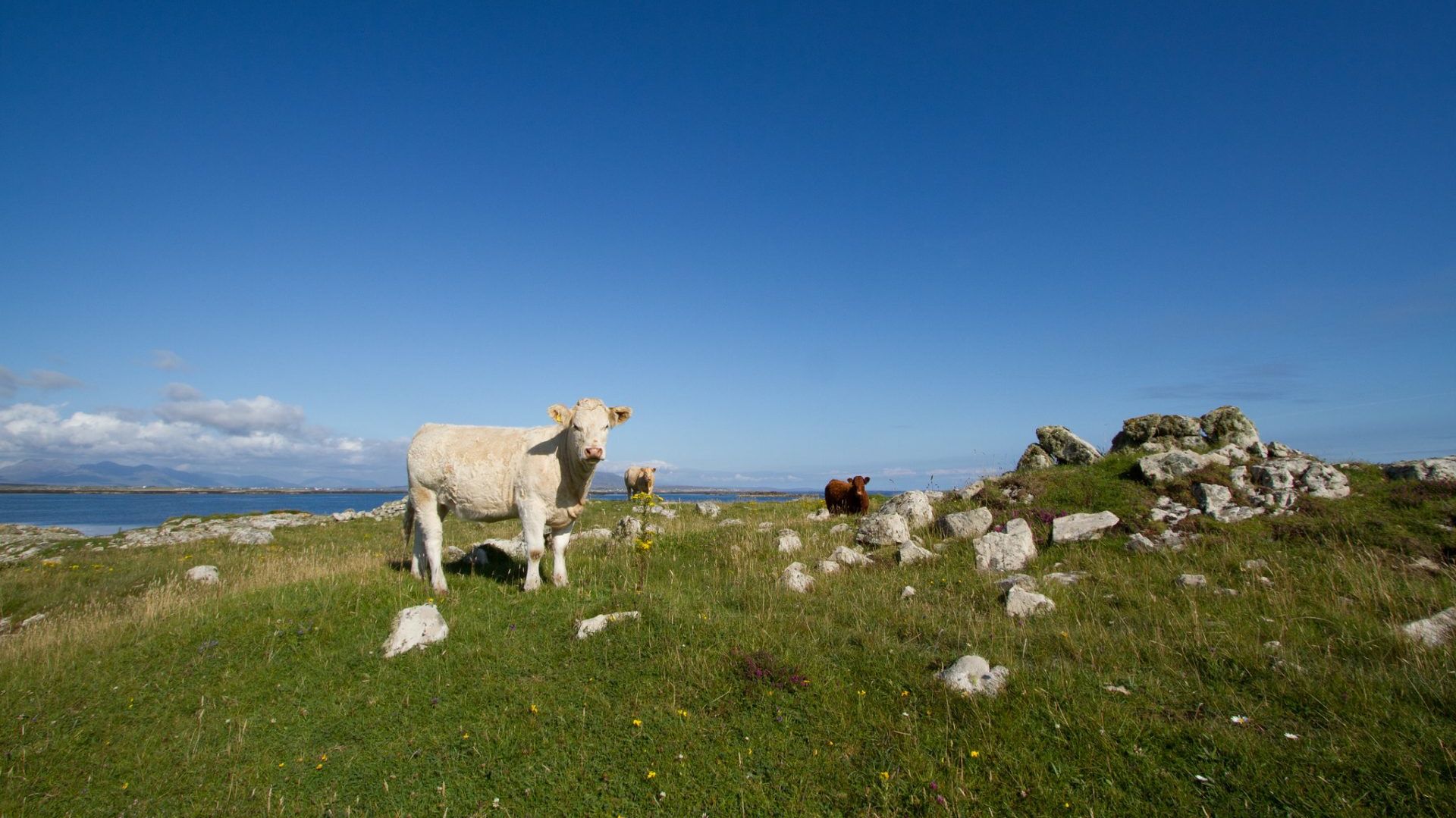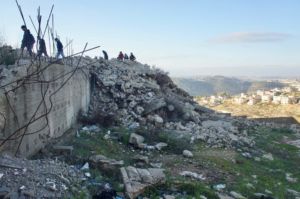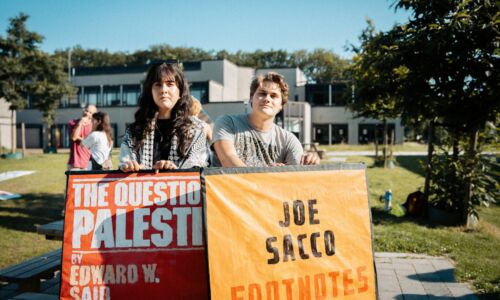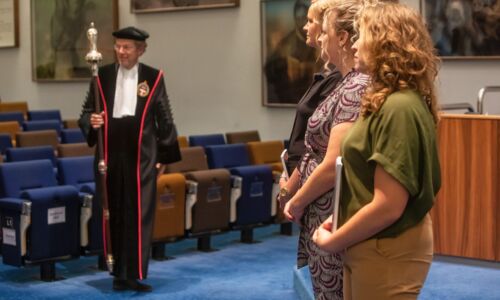Corona has made study trips abroad impossible, and that’s a loss
-
 Connemara, Ierland. Foto: Olivier Issaly (via Flickr)
Connemara, Ierland. Foto: Olivier Issaly (via Flickr)
In normal times, Biology students travel to the west coast of Ireland, French Language and Culture students to France and conflict scientists fly to Israel and Palestine. But as long as the corona pandemic has the world in its grip, a sometimes essential foreign study trip is no longer possible. ‘I'm seriously concerned about this generation of students.’
The vast peat moors of Connemara National Park form a fascinating playground for ecologists. Thanks to its location by the Atlantic Ocean, this Irish national park has a particularly wet climate. There are numerous little lakes, characteristic blanket bogs, beds of sea grass and kelp forests.
Students from the Master’s course in Ecology in Nijmegen can be found in the area every two years. ‘To get their hands dirty,’ says lecturer Bjorn Robroek. ‘Here they learn to adapt to an unknown environment, taking samples and working together in the field. You can’t learn that from sitting at a computer. For many students, it’s a step-up towards an academic career.’
‘In the Irish pub, the students learned to sell their work and realise its impact’
Roebroek recounts proudly how during previous excursions, students presented their findings in an Irish pub. ‘There were locals in there, and they were interested in what we’d come to do. Talking to those people meant the students had to translate their findings for a non-academic audience. They learned to sell their work and realise its impact.’ And yes, quite a number of glasses of Guinness were imbibed in such a session too.
The trip to Ireland was scheduled to take place again in June of last year but was cancelled for reasons we’re all aware of now. Instead of studying the Irish ecosystem, students did field work in small groups and nearer home, on the Hatertse Vennen, for example. To give it a bit of an international touch, Irish ecologists gave a guest lecture online.

Conflict about Zwarte Piet
There are many more study programmes that make grateful use in normal times of the possibilities offered by ‘being abroad’. Students have to step outside their comfort zone. They are able to apply theoretical insights in practice and make international contacts. For many students, a stay abroad is the crowning glory of their studies.
Take the Master’s in Conflicts, Territories and Identities, students of which travelled to such countries as Bosnia-Herzegovina and Israel-Palestine in past years, to see with their own eyes how a conflict or war changes a society. It was on the West Bank that the tension of the conflict really affected the students. Naturally, they had immersed themselves in the conflict, but now they actually felt it too.
For a long time, there was hope among the lecturers at the CICAM (Centre for International Conflict – Analysis & Management) that an excursion could be planned this year as usual, but that hope has continued to decline since the start of this academic year. ‘At first, we thought: okay, we’ll stay in the European Union,’ says coordinator Neta-Paulina Wagner. ‘We can go to Cyprus, for example.’
‘Now, the students are being confronted with the conflicts in the Netherlands’
When it became clear that this wasn’t an option either, it was decided to concentrate on the situation closer to home. The Netherlands may not be physically divided into two by walls several metres tall, nor is there a threat of civil war, but here too, there are conflicts. Wagner: ‘Take for example the discussion around Zwarte Piet, the legacy of colonialism, integration issues and border policy. How do they manifest themselves? And what are the consequences for society?’
Wagner and her colleague, Romain Malejacq, put together a virtual excursion based on these themes, with guest lectures and discussions. ‘It’s no proper replacement for the foreign trip, of course,’ says Wagner. ‘It’s a completely different experience. But one that’s equally challenging for the students. We’ve turned things around. Instead of going abroad and confronting people there with their questions, students are themselves being confronted with the conflicts within their own society. Dutch students are not accustomed to that. We hope that this will nevertheless be a worthwhile experience.’
Enormous boost
Using a lot of creativity, it’s possible to achieve an alternative to a reasonably short study trip such as those in Ecology or Conflict Sciences. But it’s a different matter when a long stay abroad is part of the curriculum, as it is for French Language and Culture. In that study programme, six months are set apart to take a minor at a French language university.
‘The students really look forward to that,’ admits Programme Supervisor, Marc Smeets, straight away. ‘It’s a great loss that the foreign trip was cancelled this year. It’s always an enormous boost to the students’ proficiency in the language. They immerse themselves in the culture and make international friends.’
Smeets doesn’t feel that there’s a proper alternative either. The hole the corona pandemic has made in the study programme is now being filled with a minor in good old Nijmegen. If they wish, they can complete their Bachelor’s without an extended stay abroad, and that way avoid study delays.
‘These students are not being given the same chances to acquire skills’
However, some students have a different plan. They’re hoping they’ll still be able to go to a university in France or a French-language country this summer. ‘A few of them have hinted at that,’ says Smeets. ‘So they’ll be doing an extra minor abroad, even though they’ve actually already graduated. And I can understand that, although it probably means they’ll be falling behind by six months or more.’
But there will also be students who just leave it at that. Smeets won’t go as far as to say that the quality of the study programme for those students is lower than it was for fellow students from other years. ‘It would be dangerous to say that. Lecturers are doing everything in their power to keep offering the same quality of education. Because we’re a small study programme, we can offer good, sometimes even individual, guidance, for example. But the absence of an international aspect is and will always be a great loss, that’s undeniable.’
Ecologist Bjorn Robroek, who himself hopes to travel to Sweden this year for field work, goes a step further. ‘I’m seriously concerned about this generation of students. They are hard hit by this crisis and are not being given the same opportunities to acquire skills as their predecessors were.’
Robroek feels that universities should be thinking about how to deal with that. ‘We are frantically searching for alternatives to field work, for example. We’re considering a large-scale experiment in the experimental garden behind the Huygens building, where students can learn their botanical skills.’
‘These students have a lot of catching up to do,’ he says, ‘and there’s absolutely nothing they can do about it. They surely shouldn’t be penalised for that.’



